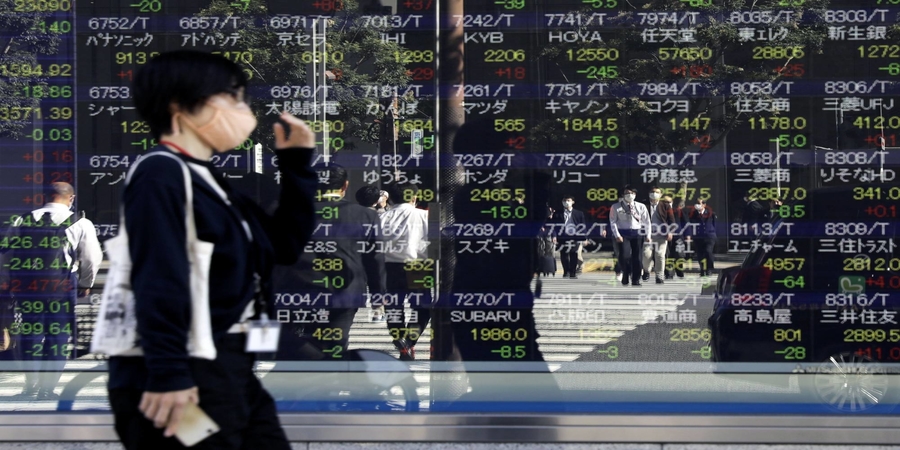A sharp rebound in global equities after unprecedented stimulus from the the Federal Reserve in March has spurred the biggest shift in Japanese fund flows in seven years.
Investors in Japan sold foreign shares worth ¥3.91 trillion ($37.7 billion) in the six months ended Sept. 30, the latest balance-of-payments data showed — the most since 2013.
They bought ¥11.8 trillion of the nation’s sovereign debt, also the biggest amount in seven years, according to figures from the Japan Securities Dealers Association.
The pivot reflects the twin themes of concern over a virus-devastated world economy and the prevalence of the 60/40 stocks-bond portfolio strategy that has come under question this year.
Japanese funds cashed in on their equities portfolio after reaping a 27% return as a stimulus-fueled rally propelled global equities to a record high.
The selling was possibly driven by profit taking, said Kiyoshi Ishigane, the chief fund manager at Mitsubishi UFJ Kokusai Asset Management Co. in Tokyo. Despite some progress in developing vaccines for the coronavirus, “there is still concern that the pandemic won’t come to an end any time soon and that the world economy will have a second bottom.”
The biggest monthly withdrawal from stocks during the fiscal half occurred in July, when banks dumped ¥4.85 trillion worth of holdings. Trust banks’ trust accounts, often seen as proxies for pension funds, were net sellers for four months through September while they stepped up purchases of overseas debt.
Read also – Tokyo stocks : Nikkei briefly jumping over 400 points
“Pension funds probably became overweight in overseas stocks due to higher equity prices,” said Shinichiro Kadota, a Tokyo-based foreign exchange strategist at Barclays Securities Japan. “So the funds sold them and shifted to foreign bonds for passive portfolio rebalancing.”
Because the shift was still within foreign assets, it wasn’t a factor for yen appreciation, he added.
During this period, the S&P 500 Index and the MSCI World Index both gained about 30%.
The behavior by Japanese funds may foreshadow a bigger global rebalancing shift in the last weeks of the year as stocks advance.
Balanced mutual funds, which control about $7 trillion of assets, may need to sell around $160 billion of stocks to revert to their targeted 60/40 allocation, according to a JPMorgan Chase & Co. report published Nov. 20 by analysts including Nikolaos Panigirtzoglou.
For investors in Japan, a steeper yield curve also helped buoy demand for the nation’s sovereign bonds this year.
Yield premiums offered by Japan’s 30-year bonds over 10-year notes have almost tripled, to about 60 basis points from a low of 24 basis points in March, on the back of record debt-funded stimulus spending. While yield curves globally have also steepened, funds in Japan are finding it JGB purchases more attractive and have become net sellers of sovereign debt in countries including France and Germany.
Japanese funds bought ¥7.88 trillion of super-long JGBs, almost three times their purchases of intermediate notes and more than six times their investment in long bonds, according to figures from the JSDA for the six-month period.
Super-long bonds refer to debt with maturities of at least 15 years, while long bonds are notes with 10-year tenors.



